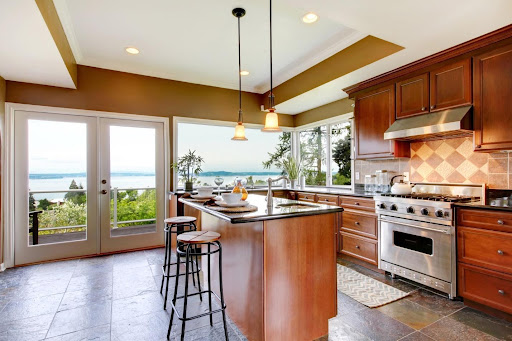Your windows may be showing signs of wearing, and the panes are becoming foggier. Some of the frames are all over the place with bent woods, and overall, they won’t open or close properly. There are many reasons why you should replace your windows, and if you’re getting one, it’s best to compare the options that you have when it comes to the materials. Let’s see window quality comparison of different materials.
Nowadays, manufacturers are improving the quality of many windows with the aid of technology. Visit this site for a more in-depth window quality comparison of the materials and which ones will work best for you. Some factors may affect your decisions, like the price, materials, interior décor, budget, and the time it will take to install these fixtures.
Criteria to Use when Evaluating
Choosing a replacement may be more stressful than many homeowners initially think. They might want to get the same design as the old one so everything will fit. Then again, the house might be too old, and the original fixtures dated back to the early 20th century are no longer available in the market. Some may want a new design to spruce up their home, but they want everything to blend into their interior décor.
With so many options today, one of the best things to do is to choose a specific window type. Once this is selected, know the kind of material you want to install in your home. Windows should also withstand the weather, including heavy rains, strong winds, and snow. Getting everything right will improve the aesthetics of your home and make the interior more energy efficient.
About the Materials of the Frames
Frames can be traditional, contemporary, or Victorian. You can choose among four different types of materials, including fiberglass, aluminum, vinyl, and wood. They have their own pros and cons, and here are some of the things that you need to know about them.
- Wood
Natural wood makes an excellent choice for homeowners who want a classic look. This makes the property appear more traditional, and wood is also naturally durable. It can be made into different sizes and shapes and you can learn more about the standard sizes in this link here. Some of its pros are:
- The right type of wood can withstand any weather, and it can last for a very long time
- The exterior can be stained or painted to match the existing colors of the home
- Provides an excellent barrier to sound
- Gives a more aesthetic appeal that can enhance the value of a home
Cons
- It’s prone to warping and rotting
- Vulnerable to termites
- Will require caulking and staining at least once every few years
- Vinyl
The window frames that are made up of vinyl are composed of PBC. Polyvinyl chloride is used in many plumbing products, construction, and other household items. Some of the pros of using vinyl are:
- Vinyl windows have energy star ratings, and they are very efficient. They can lower your monthly electricity bills because they have excellent insulation. The frames tend to be airtight, so no air is allowed to escape when everything is locked and closed.
- Require little to no maintenance, and you can use household cleaners to remove dust and lint on them.
Cons
- The darker shades can fade after a period of time
- Lesser flexibility, and there may be lesser opportunities to recycle
- Fiberglass

Windows made up of fiberglass have become popular in recent years. The overall makeup is reinforced by resin and glass fibers, and they require little to no maintenance. Some of their pros are the following:
- Fiberglass is one of the top insulators when compared to other materials because the core is filled with foam
- There’s less to no maintenance required, and this is generally resistant to flaking, fading, and peeling
- The fiberglass won’t contract, warp, or expand, and it can be durable in more extreme temperatures
Cons
- The overall costs are more expensive
- Fewer shades and colors are available
- Aluminum
Many modern homes may benefit from materials like aluminum. An article about this metal can be found in this web address: https://en.wikipedia.org/wiki/Aluminium. The overall look is very sleek and contemporary, and there’s no need to maintain them regularly. Aluminum is considered to be lightweight and can accommodate an immense expanse of glasses. With this kind of advantage, the house can have larger window spaces that allow natural light inside the rooms. The advantages of aluminum are:
- They are more affordable than the wooden windows
- More flexibility and unique shapes because they are customizable and easy to manipulate
- This is a durable material with baked-in finishes. No need for maintenance and repainting
- It’s not susceptible to warping or getting damaged by insects
- Narrow frames are available for a better view of nature and allow larger glass areas
Cons
- Aluminum can’t hold up the heat and is a poor insulator
- Moisture can form inside the windows
- Prone to corrosion, especially if you’re near the ocean and if there’s saltwater in the air.


